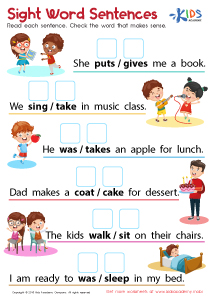Extra Challenge Reading Non-Fiction Worksheets for Ages 4-6
5 filtered results
-
From - To
Introducing our "Extra Challenge Reading Non-Fiction Worksheets for Ages 4-6" designed by Kids Academy! These worksheets are tailored to boost young learners' critical thinking and comprehension skills through engaging non-fiction content. Each worksheet provides exciting topics and illustrations that captivate young minds while challenging them to explore the world of facts. Ideal for ages 4-6, these activities promote early literacy, curiosity, and analytical skills. Perfect for classroom use or home practice, our worksheets ensure children develop a solid foundation in non-fiction reading, fostering a lifelong love for learning. Start the adventure today and help your child excel in reading!
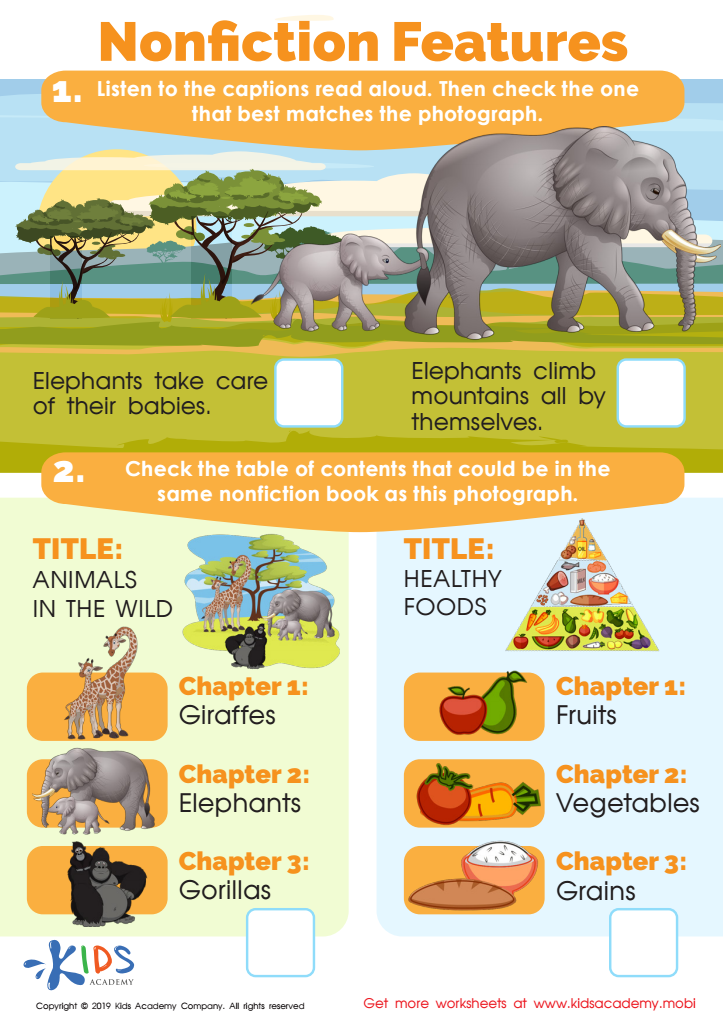

Nonfiction Features Worksheet
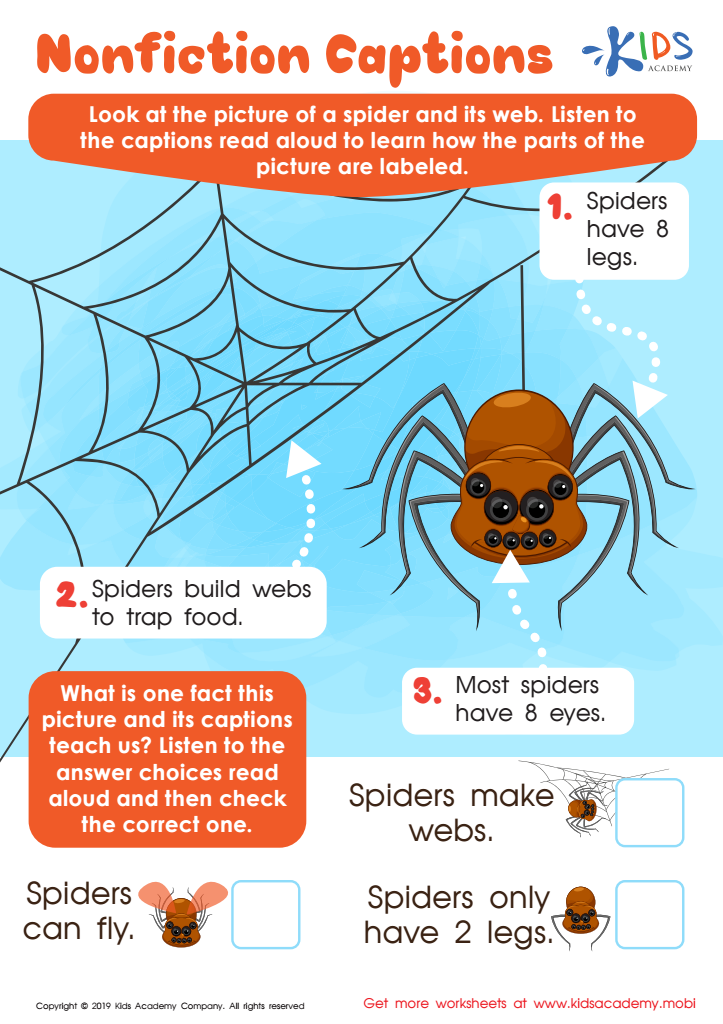

Nonfiction Captions Worksheet
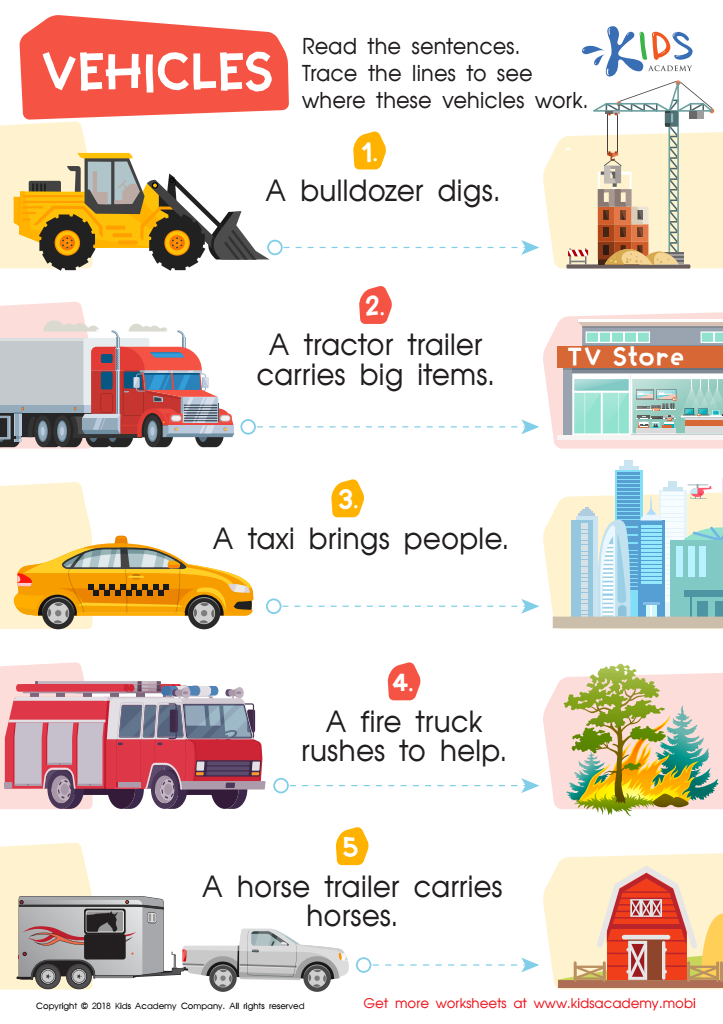

Vehicles Worksheet
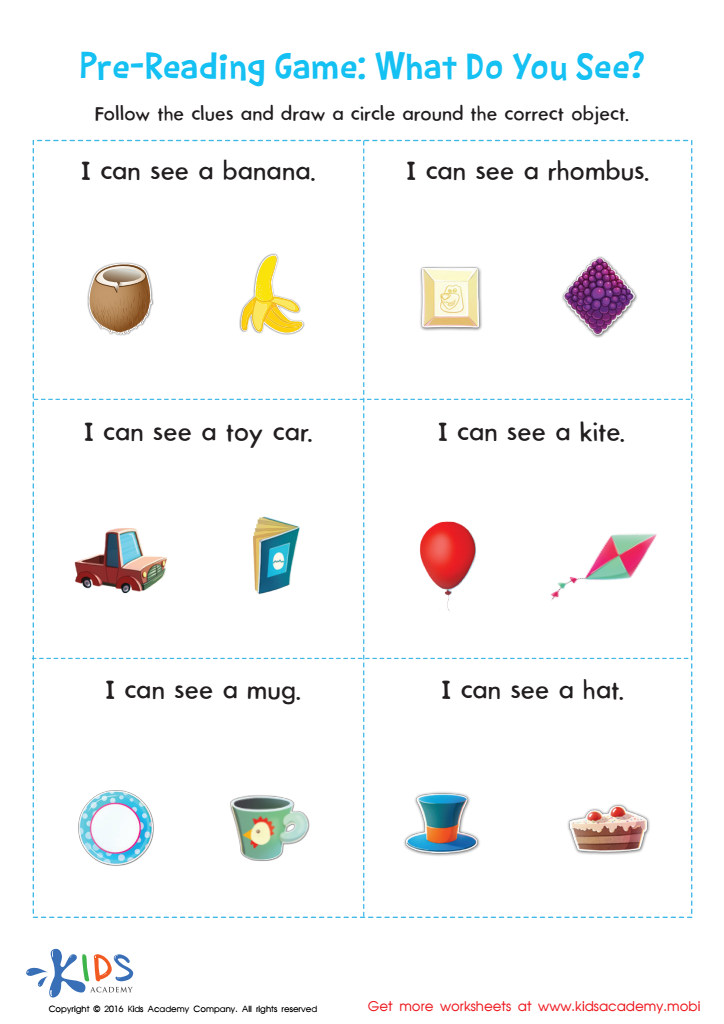

Pre–reading Worksheet: What Do You See?
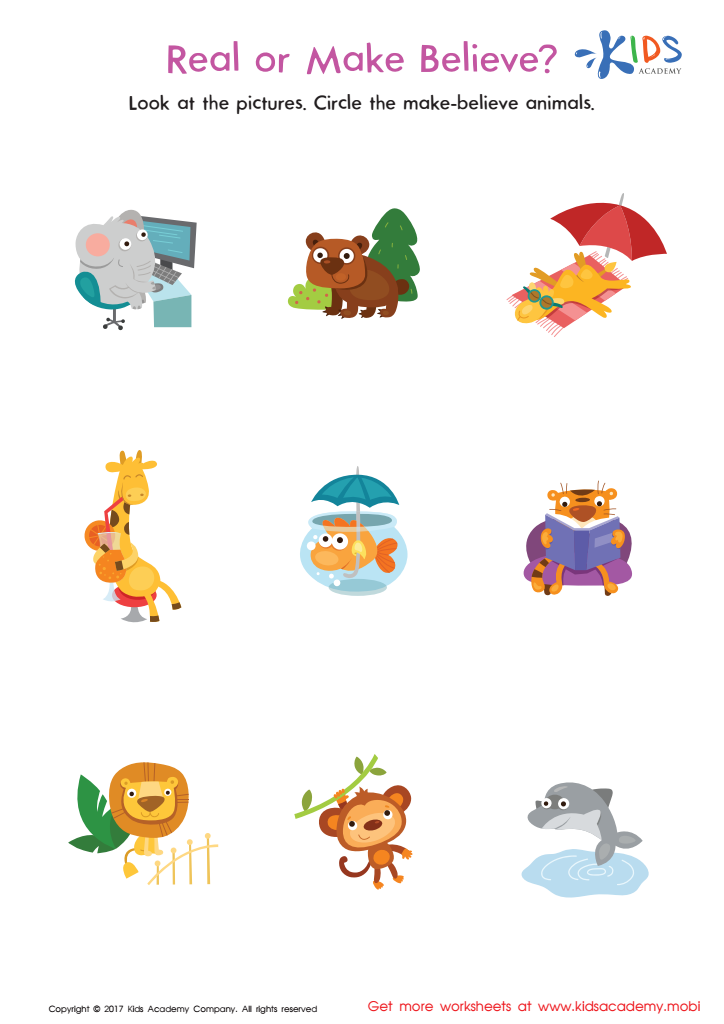

Fact or Make Believe Worksheet
Parents and teachers should care about incorporating extra challenge reading non-fiction for children aged 4-6 because this early exposure supports a variety of crucial developmental milestones. Non-fiction text helps young readers build a solid foundation of background knowledge, introducing them to real-world concepts such as science, nature, and history. This fosters curiosity and augments cognitive development by stimulating their ability to retain factual information.
Additionally, engaging with non-fiction improves critical thinking skills: children start to differentiate between different types of information, recognize patterns, and draw simple conclusions. These skills are essential not just for academic success but for day-to-day problem-solving and decision-making.
Reading non-fiction also gradually enhances a child’s vocabulary and language skills. Through contexts and clear definitions within the text, children become acquainted with precise language and terminology that enriches their speech and comprehension.
Importantly, offering varied and challenging material keeps children motivated and engaged. When young readers achieve small milestones with challenging texts, they build confidence and develop a love for learning. Incorporating non-fiction into early education thus sets the stage for lifelong inquiry and discovery, fostering resilient learners well equipped to navigate a complex world.

 Assign to My Students
Assign to My Students









